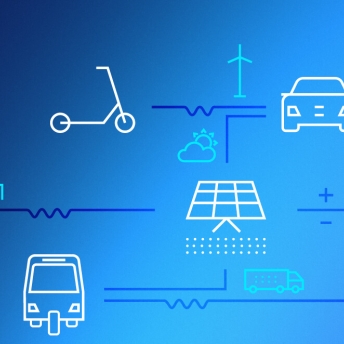Hirotaka Uchida
Partner
Head of Arthur D. Little Thailand, Automotive and Manufacturing in Southeast Asia Pacific
Hirotaka specializes in strategy development and execution for existing/new business, and sustainability/carbon neutral for automotive, mobility and other manufacturing / energy companies

Education
Past Experience

Hirotaka is a principal in ADL SEA, head of ADL Thailand and leader of Automotive practice in SEA.
Before joining ADL, he have worked in a US consulting firm and consulting function in Big 4. Including the time, he has more than 9 years experience in AP region (Thailand, Singapore and China/Hong Kong).
His clients include Automotive (OEMs, Suppliers, Mobility players), other manufacturing (industrial equipment, electric appliances), energy and government agencies.
He specializes in strategy development and execution for existing/new business, R&D and sustainability/carbon neutral for automotive, mobility and other manufacturing / energy companies. In recent years, he has been focusing on Future of Mobility (CASE, MaaS etc.), Digital Transformation and Sustainability/Carbon neutrality.
In particular, through his long-term working experiences in AP region, he supports concrete strategy development, feasible business creation and tangible partnering not only for Japanese companies in AP but also for SEA local and other foreign companies and government agencies.

GLOBAL ELECTRIC MOBILITY READINESS INDEX — GEMRIX 2023

ELECTRIFYING THE FUTURE

Strategies for emerging LIB OEMs

Unleashing Indonesia’s electric mobility potential

The relevance of EV battery swapping in emerging markets

Unleashing Thailand’s electric mobility potential

Hirotaka is a principal in ADL SEA, head of ADL Thailand and leader of Automotive practice in SEA.
Before joining ADL, he have worked in a US consulting firm and consulting function in Big 4. Including the time, he has more than 9 years experience in AP region (Thailand, Singapore and China/Hong Kong).
His clients include Automotive (OEMs, Suppliers, Mobility players), other manufacturing (industrial equipment, electric appliances), energy and government agencies.
He specializes in strategy development and execution for existing/new business, R&D and sustainability/carbon neutral for automotive, mobility and other manufacturing / energy companies. In recent years, he has been focusing on Future of Mobility (CASE, MaaS etc.), Digital Transformation and Sustainability/Carbon neutrality.
In particular, through his long-term working experiences in AP region, he supports concrete strategy development, feasible business creation and tangible partnering not only for Japanese companies in AP but also for SEA local and other foreign companies and government agencies.

GLOBAL ELECTRIC MOBILITY READINESS INDEX — GEMRIX 2023

ELECTRIFYING THE FUTURE

Strategies for emerging LIB OEMs

Unleashing Indonesia’s electric mobility potential

The relevance of EV battery swapping in emerging markets

Unleashing Thailand’s electric mobility potential
More About Hirotaka
- University of Tokyo, graduate school of agricultural and life scienceBiotechnology
- University of Tokyo, faculty of agricultureApplied life science
- Consulting function in Big 4Senior Manager
- US consulting firmConsultant
